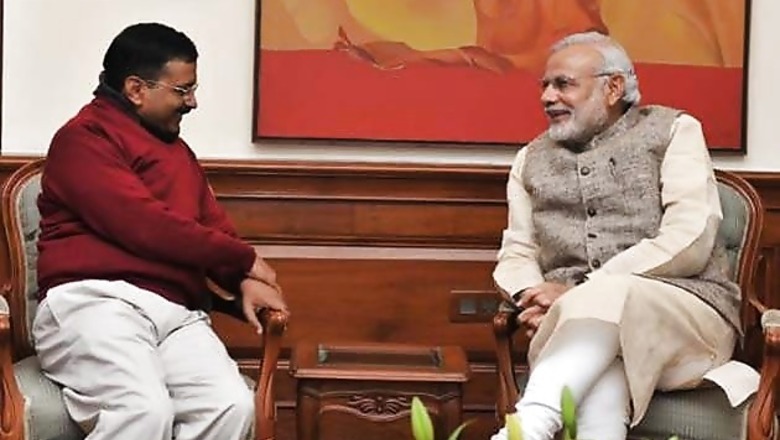
views
New Delhi: Chief Minister Arvind Kejriwal is firmly in the saddle in Delhi and the Aam Aadmi Party (AAP) has started to implement its election promises. Even though the Delhi government does not have many powers which are enjoyed by other state governments and is dependent on the Centre to implement several schemes, yet the Kejriwal government has been claiming that it will be able to tackle problems faced by the national capital easily.
Soon after Kejriwal took over as Delhi's Chief Minister, he saw a group of slum dwellers protesting against demolition of their dwellings in Shahdara. Slums in Rangpuri Pahari and Wazirpur areas, too, have been demolished in the last few days.
In one of its first decisions, the Kejriwal government ordered against any demolition, citing Centre's decision under Delhi Laws (Special Provisions) Act 2014. Under this Act, all unauthorised colonies, constructions and slums that have come up to June 2014 cannot be demolished till 2017.
But Delhi's government's decision and AAP's poll promises are not going to be so easy to implement as many of the departments are under the central government and don't report to state authorities or ministers.
Here is a look at five major areas that are likely to lead to a clash between the Delhi government and Centre.
Land: Delhi Development Authority which comes under the Union Urban Development Ministry is responsible for land related issues. For any land use, the Delhi government has to knock at DDA's doors. Starting any new project which involves land usage has to be cleared by the Union Urban Development Ministry.
Police: The Delhi government has no control over the police force which is under the Union Home Ministry. So Kejriwal and his ministers cannot issue any direction to Delhi Police and neither can they post officers of their choice. During his 49-day government in 2013-14, Kejriwal went on a dharna after the then minister Somnath Bharti launched a midnight raid against alleged drugs and prostitution racket being run by some Nigerians in Khirki Extension. Bharti also had a heated discussion with police officials after they refused to take orders from him. All previous Delhi governments have been at loggerheads with the Centre for control over the police force even as deteriorating law and order in the national capital is generally blamed on the state government.
Water: Delhi has hardly any water source of its own. The national capital is dependent on Haryana for most of its water needs or it has to use ground water which is depleting at a rapid rate. Both Haryana and Delhi don't see eye to eye on sharing of Yamuna water. During summers, Delhi complains about Haryana not releasing enough water while when the Yamuna is in spate, the latter opens the gates flooding several low lying areas of the national capital leading to more war of words.
Full statehood: While every party has at one point of time promised to fight for full statehood for Delhi, yet it is the Aam Aadmi Party which has been most vocal about it. The AAP also included it in its election manifesto. Arvind Kejriwal has already met Prime Minister Narendra Modi and Home Minister Rajnath Singh demanding the same. Delhi can be made a full-fledged state only if the concerned bill is passed by two-thirds majority in Parliament. But Modi government doesn't have the required numbers in Parliament to ensure the bill's passage.
Granting full statehood will also mean passing policing powers and land use to the Delhi government which have major security implications as all the major Central government agencies and power symbols are in Delhi.
Jan Lokpal Bill: AAP's another big promise of Jan Lokpal Bill to curb corruption also needs Centre's permission. In fact, all bills passed by Delhi Assembly need to be ratified by the Centre which could lead to friction if the two governments are not on the same page.














Comments
0 comment